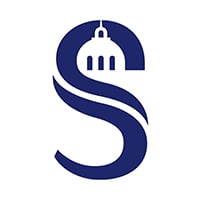MSCA Postdoctoral Fellowships at Sorbonne Université and its Alliance partners – Call for applications
Position Details (Postdoc)
The Alliance Sorbonne Université (ASU) welcomes applicants to the Marie Skłodowska-Curie Postdoctoral Fellowships (MSCA-PF) call in the research units of Sorbonne Université and its partners (CNRS, Inserm, Inria, IRD, Muséum National d’Histoire Naturelle and Université de Technologie de Compiègne).
If you are a young researcher with high potential and ambition to advance research in fundamental or applied fields, you are invited to apply to this programme with our acclaimed researchers for an opportunity to work on and develop your ideas in an exceptional research environment with the 1st ranked French university for Horizon Europe funding.
Offers from the ASU cover the following panels: Chemistry (CHE), Information Science and Engineering (ENG), Environment and Geosciences (ENV), Life Sciences (LIF), Mathematics (MAT), Physics (PHY), Social Sciences and Humanities (SOC).
About the MSCA Postdoctoral Fellowships
The MSCA-PF is one of the most important schemes of the European Commission’s Horizon Europe Research & Innovation programme. It aims at developing the potential of young researchers in Europe, by funding excellent research and promoting international mobility, as well as interdisciplinary and intersectoral exchanges.
The proposal must be a joint application between a candidate and a Supervisor from Sorbonne Université or its Alliance partners, which presents an original research project. We welcome two types of fellowship applications:
– European Fellowships: With Sorbonne Université or one of its ASU partners as the Host Institution, for a duration of 12 to 24 months. Secondments in partner research or industrial organisations are possible.
– Global Fellowships: With an outgoing phase of 12 to 24 months at a Host Institution outside of the EU or associated countries, and a return phase of 12 months at ASU.
The fellows selected for funding, after external evaluation by independent experts appointed by the European Commission, will be employed by Sorbonne Université or its ASU partner under a full social benefits contract for up to 24 months (or 36 months for Global Fellowships), including a mobility allowance for all fellows and a family allowance for eligible fellows. The funding will also cover additional research costs of up to €1000/month. Sorbonne Université has received the HRS4R award and provides a world-class research working environment in terms of Ethics & research integrity, recruitment, working conditions, and training.
How to apply
1. Select a Supervisor in a given Host Institution from the list of Panels advertised on Sorbonne Université’s website:
https://www.sorbonne-universite.fr/en/news/msca-postdoctoral-fellowships-sorbonne-universite-and-its-alliance-2025
2. Fill the required application forms (CV, Motivation Letter and Declaration of Eligibility) and send them as PDF files before May 15th to the email address [email protected].
3. The selected candidates will be contacted by Sorbonne Université and will be invited to the MSCA Master Class on June 17th – 18th.
Eligibility criteria
– The researcher must be in possession of a doctoral degree or have successfully unconditionnally defended their doctoral thesis before the call deadline (Sept. 10th 2025)
– Maximum 8 years (full-time equivalent) research experience from the date of award of the (first) doctoral degree
– Must comply with the following mobility rule: they must have resided or carried out their main activity (work, studies, etc.) in France (or European Postdoctoral Fellowships) or the host organisation for the outgoing phase (for Global Postdoctoral Felowships) for more than 12 months in the 36 months immediatly before the call deadline
– The programme is open to applicants of any nationality. Only one proposal per applicant is eligible. Beware that applicants who have applied to the MSCA Postdoctoral Fellowship 2024 call and received an evaluation below 70% are not eligible for an application in 2025.
Selection process
The applicants for each of the proposed project topics in this call for applications will be selected by the Supervisors.
The selected applicants and their Supervisors, over the summer, will write a joint proposal on their project topic, which will be submitted to the Horizon Europe MSCA Postdoctoral Fellowship call and evaluated by experts appointed by the European Commission on the basis of Excellence, Impact and Quality & Efficiency of the Implementation by one of 8 selection panels.
If selected, the proposal will be funded in 2026-2027 by the European Commission through Sorbonne Université or its partners, which will employ the researcher and provide the allocated research funds, as well as the logistics and necessary facilities to implement the project.



 Sorbonne University
Sorbonne University